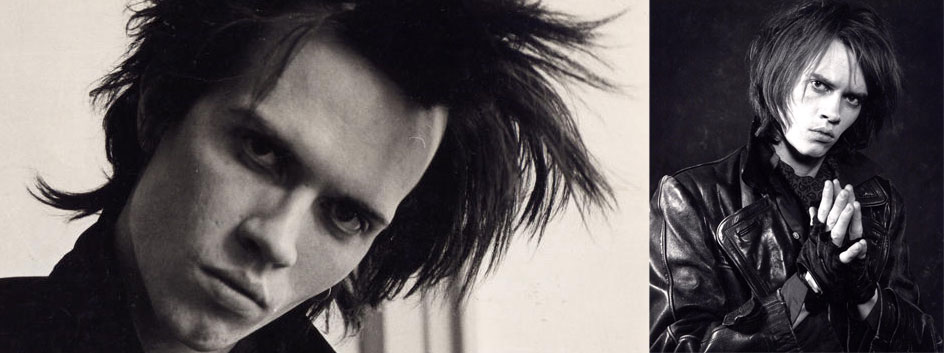|
[Image from Alchetron--The
Free Social Encyclopedia]
NICK ZEDD (1958 ‑ 2022)
Artist and underground filmmaker Nick Zedd died on the morning of February 27 at the age of 63. He would have been 64 on May 8. I had no idea that he had been sick and ailing for some time. Though I'd known him for more than 30 years, Nick and I became tight over the past two years of “covid” mania, snapping on compliant fools posting on FaceBook and elsewhere who were pushing the official narrative, supporting mandates on those of us who weren’t swallowing the bullshit they were being fed. Nick was always viciously passionate and articulate in his heavy responses to those who justify a social control police state "for our safety" and I loved him for it. Nick came to NYC in 1976, studied at Pratt Institute and the School of Visual Arts, and then moved to the Lower East Side. He made his first film, They Eat Scum, in 1979. Nick coined the term “Cinema of Transgression,” which he announced in his self-published Underground Film Bulletin, used to promote his work and that of his fellow Lower East Side filmmakers. In his Cinema of Transgression Manifesto, Zedd proposed that “all film schools be blown up and all boring films never be made again,” and that “any film which doesn’t shock isn’t worth looking at.” Nick also said that “ours is the art of bad taste, which blots out and destroys your system of lies and self‑delusion.” Nick and I first met on the Lower East Side, shortly after The SHADOW began publishing in 1989. I had seen his short film POLICE STATE (1987) and wanted to review it. In that film, Zedd’s character is taken in to a police station by a creepy kop (played by musician and filmmaker Willoughby Sharp) because he refuses to give the kop his name. Once inside, Zedd is beaten by two kops (one played by ex‑con Flip Crowley and the other by legendary underground film actor Rockets Redglare.) Nick gave me copies of Police State and his other films, all of which displayed a RAW Lower East Side, hardly recognizable today, populated by extreme characters in dingy apartments, bombed-out rubble-strewn lots and abandoned buildings, all in glorious black + white. In addition to They Eat Scum and Police State, Nick’s films included War is Menstrual Envy, Thrust In Me, Geek Maggot Bingo, My Slave and Ecstasy in Entropy. Nick also acted in several underground films on the Lower East Side for Cassandra Stark, Richard Kern and Rachel Amodeo and others. I last saw Nick in person at the 100th birthday celebration of beat writer and poet William S. Burroughs at the St. Marx Church in 2014. At that point, he was living full‑time in Mexico because, as he told me, he could no longer afford to live here. Who could blame him? Many of us on the Lower East Side are still saddened over the deaths of musician Al Landess (“Hammerbrain” and “Damn Kids”), who passed less than two weeks before Nick, and of artist and filmmaker M. Henry Jones, who passed on June 16. All three were a part of the counter‑cultural renaissance on the Lower East Side that emerged in the 1980s, when this area had been given up for dead and was disregarded by the city, which withheld essential services in an effort to accomplish what was called "spatial deconcentration" and "planned shrinkage." This neighborhood was resuscitated by the artistic community that re‑habbed empty city-owned buildings, created performance spaces, made and displayed art, wrote and performed music, and shot and projected underground films. Back then, this really WAS the "city that never sleeps" with above-ground and underground venues open all night long till dawn, populated by plenty of talented performers and artists with audiences that appreciated them. Rent was low, food was cheap with abundant portions served at restaurants that never closed and there was excitement and danger in the air, all at the same time. It was a GREAT time to be here in your teens and twenties! As a person in a documentary about California's Z Channel said: "You never know when you're living in a golden age." We certainly WERE. And people like Nick, Al and Henry were what made it golden.
–Chris Flash
|
